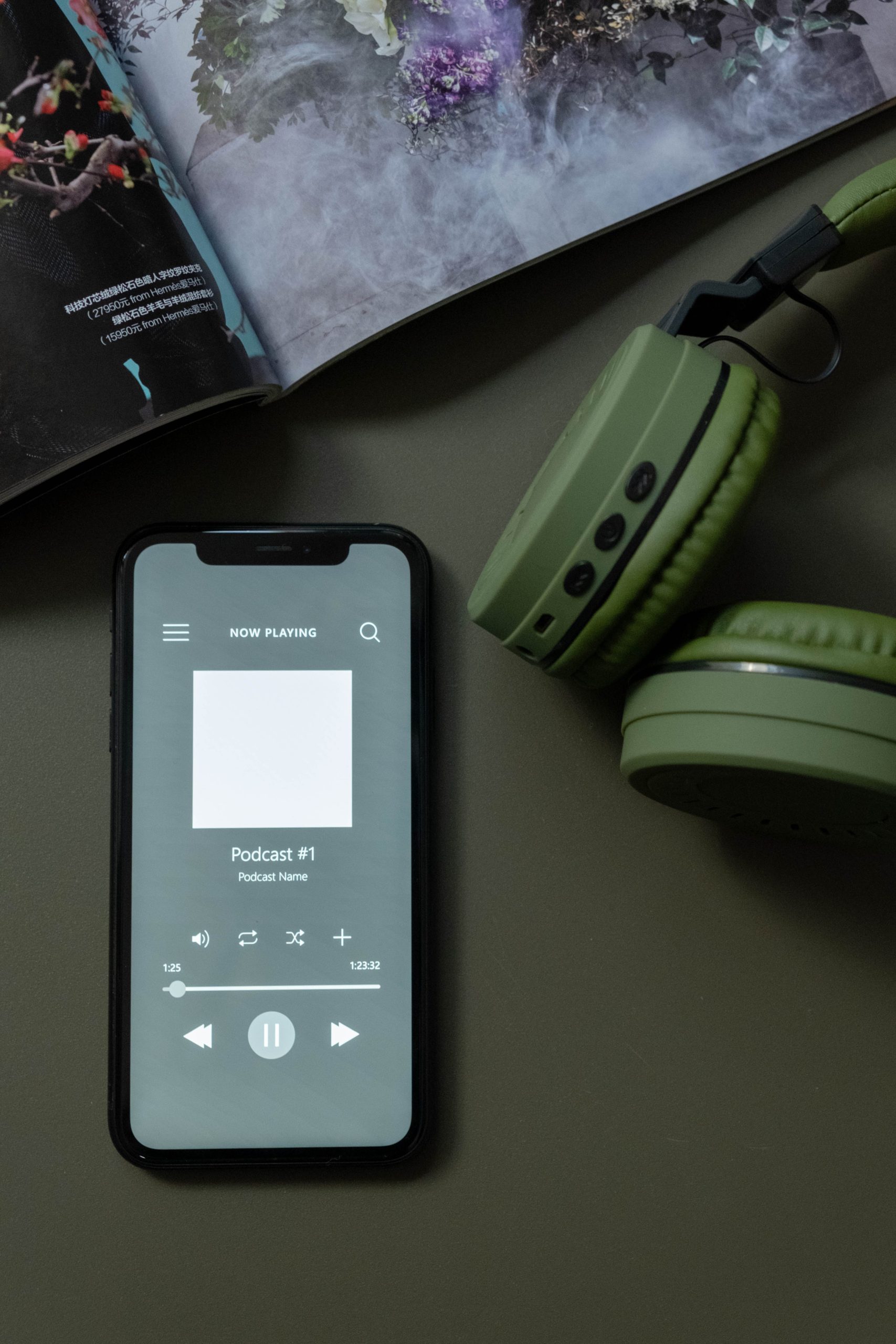When it comes to podcasting, finding the right balance between solo and co-hosted shows can make all the difference in creating an engaging and dynamic experience for your listeners. Solo shows allow you to fully express your thoughts and ideas, while co-hosted shows bring a fresh perspective and collaborative energy to the table. In this article, we will explore the top three reasons why mastering the balance between these two formats is essential for your podcasting success. So grab your Shure microphone, settle into your recording space, and let’s dive into the world of solo and co-hosted shows.

Understanding the Difference Between Solo and Co-hosted Shows
Podcasting has become a popular form of entertainment and information sharing, and there are different styles and formats to consider when starting a podcast. Two common styles are solo podcasts and co-hosted podcasts. Understanding the difference between these two styles can help you make an informed decision about which one is right for you.
Definition of Solo Podcasts
A solo podcast, as the name suggests, is a show where one person takes on the role of host and delivers the content on their own. They are responsible for planning, recording, and editing the episodes, as well as engaging with the audience and growing the podcast’s reach. Solo podcasts can be a great option for individuals who want full creative control and enjoy working independently.
Definition of Co-hosted Podcasts
On the other hand, a co-hosted podcast involves two or more hosts working together to create and deliver the content. Co-hosted shows often include discussions, debates, and back-and-forth conversations between the hosts, providing different perspectives and creating a dynamic listening experience. Co-hosted podcasts are a popular choice for those who enjoy collaborating and bouncing ideas off of others.
Pros and Cons of Each Style
Both solo podcasts and co-hosted podcasts have their own unique advantages and disadvantages. Solo shows allow for complete creative control, allowing you to express your ideas and thoughts without any interruptions. They also offer more flexibility in terms of scheduling, as you don’t have to coordinate with others. However, solo podcasting can sometimes feel isolating and may require more effort to keep the content engaging for the audience.
On the other hand, co-hosted shows provide the opportunity for lively discussions and diverse opinions, which can make the episodes more interesting and relatable to the audience. Co-hosts can support each other and contribute different skill sets, making the workload more manageable. However, coordinating with co-hosts can be challenging, and differing schedules and availability can sometimes pose obstacles.
The Role of Technology in Balancing Solo and Co-hosted Shows
Embracing technology is crucial for both solo and co-hosted podcasts to ensure a smooth recording and editing process while maintaining high-quality audio. Here are some essential podcasting equipment and tools that can enhance your podcasting experience:
Essential Podcasting Equipment
To start a podcast, you will need a few essential pieces of equipment. A good quality microphone is the first and most important investment. Shure, Rode, and Audio-Technica are popular microphone brands known for their superior sound quality. Depending on your budget and recording environment, you can choose a USB microphone or an XLR microphone that requires an audio interface.
Using Shure, Rode, and Audio-Technica for Solo Podcasting
For solo podcasting, the focus is primarily on the host’s voice. A microphone from brands like Shure, Rode, or Audio-Technica can capture your voice with excellent clarity and minimal background noise. These microphones offer a range of options suitable for different budgets and recording environments, ensuring professional sound quality for your solo podcasts.
Emulating Co-hosted Show Vibes with Zoom and Behringer Xenyx X1204USB Premium 12-Input Mixer
If you want to create a co-hosted show but don’t have the luxury of being in the same location as your co-hosts, technology can bridge the gap. Zoom, a popular video conferencing tool, allows you to connect with co-hosts and guests remotely, facilitating discussions and collaborations. Combined with a mixer like the Behringer Xenyx X1204USB, you can achieve a professional audio setup, blending multiple audio sources and achieving a cohesive co-hosted show vibe.
Importance of Quality Equipment in Enhancing Listener Experience
Regardless of whether you choose a solo or co-hosted podcast format, investing in quality equipment is essential for creating a pleasurable listening experience for your audience. Poor audio quality can deter listeners, even if the content is great. High-quality microphones, audio interfaces, and mixers ensure clear sound reproduction, engaging your audience and keeping them coming back for more.

Importance of Sound Quality and Software in Solo and Co-hosted Podcasting
Sound quality is crucial for every podcast, as it contributes to the professional and enjoyable experience for listeners. Additionally, having the right software can simplify the editing process and enhance the overall production value of your podcast. Here are some software options and studio equipment that can help you achieve optimum sound quality:
Role of Adobe Audition Podcasting Software
Adobe Audition is a popular and versatile audio editing software widely used by podcasters. It provides a range of features, including noise reduction, audio enhancement, and multi-track editing capabilities. With Adobe Audition, you can fine-tune your recordings, remove unwanted background noise, and polish your episodes to perfection.
Benefits of Audacity Audio Editor and Recorder
Audacity is a free and open-source audio editing software that is another excellent option for podcasters. While it may not have all the advanced features of Adobe Audition, Audacity is user-friendly and offers essential tools for editing, recording, and exporting audio files. It is a great option, especially for those starting on a budget or seeking a simplified editing process.
Choosing between Adobe Audition and Audacity
Deciding between Adobe Audition and Audacity depends on your specific needs and preferences. If you require advanced editing capabilities and are willing to invest in software, Adobe Audition is a powerful choice. On the other hand, if you’re just starting and prefer a free option that still offers solid editing capabilities, Audacity is an excellent entry-level choice.
Role of KRK ROKIT 5 G4 Studio Monitor in Sound Production
While editing software plays a crucial role in post-production, it’s equally important to monitor your recordings accurately. Quality studio monitors, such as the KRK ROKIT 5 G4, reproduce sound faithfully, allowing you to hear the true nuances and details of your recordings. This level of monitoring ensures that your podcast sounds its best across different sound systems and platforms.
Increasing Listenership Through Balanced Podcast Styles
Attracting and retaining listeners is a common goal for podcasters, regardless of the chosen format. Both solo and co-hosted shows offer unique benefits that can help enhance listenership and maintain engagement over time.
Attracting Different Audiences
Having a mix of solo and co-hosted shows can attract different types of audiences. Some listeners prefer the deep dive and focused insights provided by solo podcasts, while others enjoy the lively discussions and back-and-forth banter of co-hosted shows. By offering a variety of formats, you can appeal to a broader audience base and capture the attention of listeners with different preferences.
Leveraging Different Conversation Styles
Co-hosted shows allow for dynamic conversations and debates, which can be insightful and engaging for listeners. The exchange of ideas and different perspectives in co-hosted shows can create a more interactive experience, as listeners feel like they are part of the conversation. On the other hand, solo podcasts provide a direct and focused communication style, allowing you to convey your thoughts and ideas clearly to the audience.
Benefits of Varied Podcast Formats in Retaining Listeners
Providing a mix of solo and co-hosted shows can help retain listeners over time. Regular listeners appreciate variety and may seek out different formats depending on their mood or preferences. By offering a balanced blend of solo and co-hosted episodes, you keep your content fresh, interesting, and enjoyable, leading to increased listener loyalty and a growing fan base.

Enhancing Audio Quality with High-Level Equipment
Investing in high-level equipment is crucial for podcasters who are serious about delivering exceptional audio quality. Quality equipment can significantly enhance the listening experience and elevate your podcast to a professional level.
Role of Blue Yeti Microphone, Focusrite, and Cloud Microphones
The Blue Yeti microphone is a popular USB microphone choice that offers excellent sound quality and ease of use. Combined with an audio interface like the Focusrite Scarlett, you can capture clear and professional audio. Cloud Microphones, known for their high-quality ribbon microphones, also offer options for those seeking a warm and vintage sound.
Improving Sound Isolation with Neewer Professional Studio Recording Microphone Isolation Shield
Sound isolation is crucial for maintaining audio clarity and reducing unwanted background noise or reverberation. The Neewer Professional Studio Recording Microphone Isolation Shield provides effective sound isolation by minimizing reflections and echo in your recordings. This shield enhances the focus on your voice or the voices of your co-hosts, resulting in cleaner and more professional-sounding episodes.
Benefits of AKG K240 Studio Semi-Open Over-Ear Professional Studio Headphones in Sound Quality
To ensure accurate monitoring and precise editing, high-quality headphones are essential. AKG K240 Studio headphones are known for their accurate sound reproduction and comfort, making them an excellent choice for podcasters. These headphones allow you to hear subtle details in your recordings, ensuring that your final product is polished and sounds great across various audio systems.
Reason 1: Versatility and Flexibility
Mastering the balance between solo and co-hosted shows comes with several benefits. The first reason is the versatility and flexibility it offers podcasters in terms of content creation.
Ability to Adapt to Guest Availability
When hosting a co-hosted show, scheduling and coordinating with co-hosts and guests can sometimes be challenging. However, by incorporating solo episodes into your podcasting schedule, you have the ability to adapt and create content regardless of your guests’ availability. This ensures a consistent flow of episodes, even when coordinating with multiple people is difficult.
Opportunity to Diversify Content
Having a combination of solo and co-hosted episodes allows you to diversify your content and explore different topics and formats. Solo episodes can provide an opportunity to delve deep into a particular subject or share personal stories and experiences. Co-hosted episodes, on the other hand, allow for lively discussions and a more interactive experience. By diversifying your content, you keep your audience engaged and interested.
Flexibility in Production and Recording
balancing solo and co-hosted shows gives you the flexibility to adjust your production and recording schedule as needed. Solo episodes require less coordination and can be recorded at your convenience. Co-hosted episodes may require more planning and scheduling, but they also provide the opportunity for collaboration and engaging discussions. The flexibility of mixing both styles allows you to cater to your own availability and maintain a consistent podcasting schedule.
Reason 2: Increased Content Creation Opportunities
Mastering the balance between solo and co-hosted shows also opens up new opportunities for content creation.
Boosting Creativity
By incorporating solo episodes, you have the freedom to explore your own creativity and experiment with different formats and styles. You can use solo episodes as a platform to share your unique insights, delve deep into niche topics, or bring your personal experiences to the forefront. This creative freedom can lead to exciting and engaging content that sets your podcast apart.
Enhanced Collaboration with Co-hosts and Guests
Co-hosted episodes offer a collaborative platform where different voices and perspectives come together. Collaborating with co-hosts and guest speakers opens up a wealth of knowledge and ideas, resulting in dynamic and thought-provoking discussions. The exchange of ideas and diverse viewpoints can enhance the overall quality of your episodes and offer fresh perspectives to your listeners.
Improved Engagement with Listeners
A combination of solo and co-hosted episodes keeps your podcast fresh and engaging for listeners. Solo episodes allow you to connect with your audience on a more personal level, sharing stories and insights that resonate. Co-hosted episodes, on the other hand, create a sense of community and encourage listener engagement through discussions and debates. By offering varied content and actively engaging with your audience, you build a loyal fan base that keeps coming back for more.
Reason 3: Growth and Personal Development
Balancing solo and co-hosted shows can also contribute to your personal development as a podcaster.
Developing Interviewing Skills
Hosting co-hosted episodes offers the opportunity to develop your interviewing skills. Engaging in conversations with co-hosts and guests requires active listening, asking thoughtful questions, and facilitating meaningful discussions. By honing your interviewing skills, you become a more versatile and adept podcast host, attracting high-profile guests and delivering engaging episodes.
Increasing Confidence in Hosting Solo
Hosting solo episodes allows you to build confidence in your abilities as a solo speaker and content creator. As you gain experience and refine your delivery style, you become more comfortable sharing your thoughts and ideas directly with your audience. This increased confidence translates into higher quality solo episodes that captivate and inspire your listeners.
Building a More Resilient and Adaptable Podcast Brand
Mastering the balance between solo and co-hosted shows helps create a more resilient and adaptable podcast brand. By being versatile in your podcasting approach, you can adapt to different situations, maintain consistency even in challenging circumstances, and continue to deliver high-quality content. This resilience and adaptability contribute to the long-term success and growth of your podcast.
Advanced Software for Streamlining Podcast Production
In addition to high-quality equipment, utilizing advanced software can streamline your podcast production process and save you valuable time and effort.
Importance of Auphonic for Automation
Auphonic is an automated audio post-production tool that simplifies the editing and mastering process. It automatically balances and levels your audio tracks, reduces background noise, and enhances sound quality. Auphonic can save hours of manual editing, allowing you to focus on creating content rather than spending excessive time on post-production tasks.
Role of Elgato in Podcasting
Elgato is a brand known for its innovative solutions in the field of content creation. Their products, such as capture cards and streaming devices, can enhance your podcasting setup and streamline your workflow. Elgato products enable you to easily capture high-quality audio and video, making them ideal for podcasters who incorporate video elements into their shows.
Sony, PreSonus, and Yamaha’s Contributions to Effortless Podcast Production
Sony, PreSonus, and Yamaha are reputable brands known for their contributions to podcast production. Sony’s range of portable recorders provides convenience and ease of use for on-the-go podcasting. PreSonus offers audio interfaces and mixers that deliver professional sound quality and enhance the editing process. Yamaha’s studio monitors and speakers provide accurate sound representation, ensuring your podcast sounds great on any listening device.
Incorporating High-Quality Audio Brands in Your Podcasting Journey
As a podcaster, using high-quality audio brands can significantly elevate the overall sound quality of your episodes. Certain brands are renowned for their professional-grade microphones, headphones, and other audio equipment.
Sennheiser and Mackie’s Role in Professional Podcasting
Sennheiser and Mackie are two brands that have established themselves as industry leaders in professional podcasting equipment. Sennheiser offers a wide range of microphones suitable for various applications, ensuring crystal-clear audio reproduction. Mackie, known for its mixers and audio interfaces, provides reliable and high-quality solutions for podcasters seeking professional-grade audio equipment.
Balancing the Use of Various Brands for Optimal Results
When building your podcasting setup, using a combination of different audio brands can help you achieve optimal results. By choosing equipment from different brands, you can leverage the strengths of each to create a customized and powerful podcasting setup. However, it’s important to research and ensure compatibility among the different components to ensure seamless integration and optimal performance.
In conclusion, mastering the balance between solo and co-hosted shows offers numerous benefits for podcasters. Both solo and co-hosted formats have their advantages, and by combining them, you can diversify your content, enhance listener engagement, and foster personal growth as a podcaster. Investing in high-quality equipment and utilizing advanced software can further enhance the production value and sound quality of your episodes. Additionally, incorporating various audio brands can help you create a customized podcasting setup that suits your specific needs and elevates the overall listening experience. By understanding the differences between solo and co-hosted shows and leveraging the power of technology, you can take your podcast to new heights and attract a wide range of listeners. So go ahead and explore the possibilities of balancing solo and co-hosted shows to create a successful and engaging podcast that captivates your audience.
